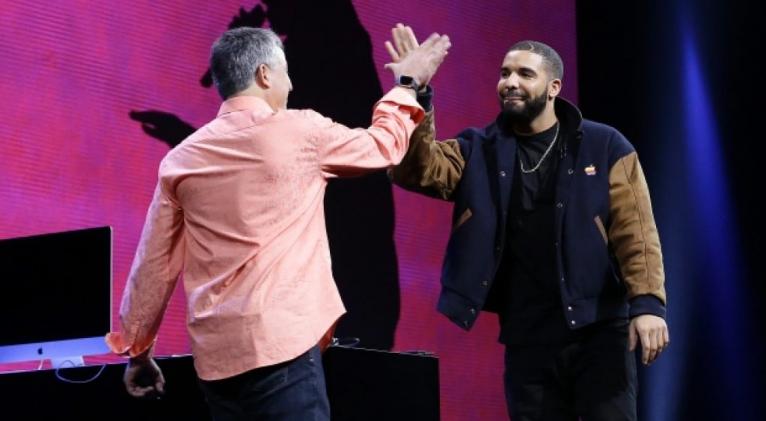Apple Music: What its debut means for the competition

Apple has finally joined the music-streaming party with Monday's introduction of Apple Music, and while it promises to crank up the competition for listeners, an industry expert doesn't expect it will silence traditional radio.
The company tends to dominate the markets where it chooses to play, and Apple is pushing into streaming as its battle for music listeners moves beyond song downloads.
"Apple is arriving late ... but the writing is on the wall. Digital downloads don't make sense for consumers that are connected wherever they go," said James McQuivey, an industry analyst with Forrester Research, in an email interview with CBC News.
Subscription and streaming services, including streamed radio, were already showing some promise when Apple unveiled its iTunes store way back in 2003, but then-CEO Steve Jobs missed few opportunities to dismiss their potential. He insisted that music lovers wanted to own, not rent, their favourite tunes.
Jobs even suggested, in an interview with Rolling Stone later that year, that the Second Coming itself "might not be successful" if offered on a subscription model.
- Albums spinning toward irrelevance, say insiders
- Tidal backed by Arcade Fire, Deadmau5 and others
- Apple Music streaming service unveiled
- Streaming music: a villain or saviour for local labels?
That delay was good news for the competition.
About 41 million people globally now pay for streaming music from Spotify, Deezer and other outlets, according to the International Federation of the Phonographic Industry. It says subscription revenue grew 39 per cent last year to $1.6 billion US.
Overall music download sales, meanwhile, fell 8 per cent to $3.6 billion in 2014, taking some of the shine off Apple and its iTunes store.
Despite its late embrace of streaming, McQuivey predicts Apple can catch up to, and even overtake, streaming heavyweight Spotify.
"Not because its service will be any better," says McQuivey. "But because it can build its new music service into the hundreds of millions of devices that its loyal Apple users already love."
Apple has a huge pool of potential customers for its $10-a-month service — it sold 61 million iPhones in the past quarter alone.
What about radio?
While it will likely put serious pressure on existing streaming services like Spotify, it's less clear whether Apple Music will be able to poach listeners from traditional radio.
The rise of streaming TV services like Netflix has made life difficult for traditional television broadcasters. One might imagine it would be even harder for creaky, century-old technology like AM and FM transmitters to compete with music streaming once the 800-pound gorilla known as Apple steps into the ring.

Radio is "the only medium that's hyper-local, and it has a strong psychological affiliation with the listener," says Toronto radio consultant Paul Ski. (Jonathan Alcorn/Reuters)
But Paul Ski, a long-time radio executive turned consultant, says radio is tougher than some people think.
"Radio is the most resilient of all media because it's been able to recreate itself — to be whatever was necessary at the time," Ski told CBC News from Toronto.
Radio was thought to be doomed when TV came along, and again when tape decks were built into cars, and yet again when satellite radio launched. But it adapted by playing to its strengths.
Right now, says Ski, best radio's strength is its connection with local audiences.
"It's the only medium that's hyper-local, and it has a strong psychological affiliation with the listener," through both the music it plays and the on-air talent, Ski says.
Other outlets, including satellite radio and streaming services, are more homogenous.
Playing to those strengths is radio's best bet as the competition heats up, Ski says — some streaming services are already striving to add a human element to their own offerings, for instance.
Apple says it will give artists a forum called "Connect" to allow them to interact with fans by releasing demos, playlists, sound bites, videos and songs. Similar language has been used to describe the recently revamped Tidal and other "curated" streaming services.
Ski says curated services are "very valuable" to people with busy schedules, who might not have much time to invest in discovering new music. Even so, he says, "most music discovery now is still done predominantly on the radio."
Whether that will be true in five, 10 or 20 years remains to be seen, he says. But in the meantime, radio needs to pay attention to what it's playing and be "constantly keeping a very close eye on audiences."













Add new comment